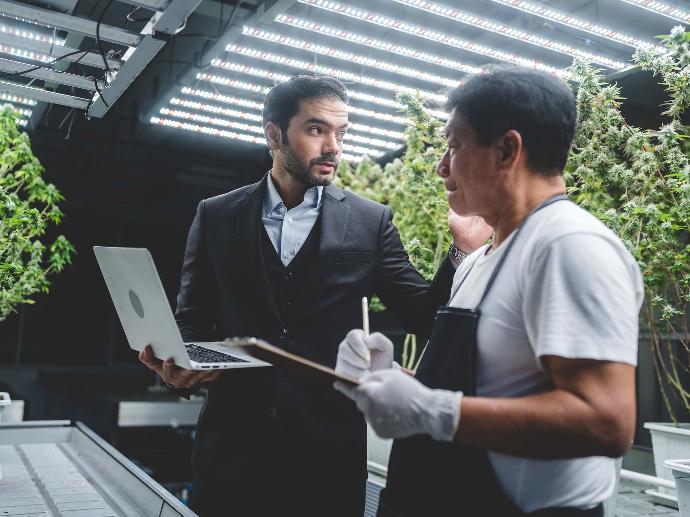The latest earnings season unveiled intriguing insights for the U.S. cannabis sector, with tax strategies, new market potentials, and wholesale operations drawing attention.
Multistate operators (MSOs) reported robust fourth-quarter results, surpassing revenue and earnings expectations and showcasing improved gross margins year over year. This performance underlines a strategic shift towards meticulous cost control and operational efficiency amidst challenging market conditions.

Bold move against 280E taxation
A standout revelation came from Florida-based Trulieve, which announced receiving $113 million in tax refunds by challenging the burdensome Section 280E of the Internal Revenue Code, which significantly impacts cannabis companies' tax liabilities. Other operators like Ascend Wellness Holdings and TerrAscend Corp. are following suit, signaling a potential industry-wide reevaluation of tax strategies under 280E.
The legal foundations of these strategies are not fully disclosed, yet they suggest an aggressive stance against the IRS's interpretation of 280E, possibly arguing its applicability or constitutional basis. This move has sparked a mix of optimism and caution among industry observers, recognizing both the boldness of the strategy and the inherent risks involved.

What is 280E?
In the standard business world, federal income taxes are determined by starting with the total revenue generated over the year and then deducting the costs incurred to earn that revenue, arriving at what's termed “taxable income.” The amount of tax a business owes is then calculated from this figure, significantly influenced by permissible business deductions. Typically, the corporate tax rate stands at 21%, with smaller businesses often benefiting from lower rates.
However, for cannabis business owners operating legally within their states, the situation is starkly different. They are excluded from leveraging these tax deductions, which forces them to pay taxes on their entire revenue without the benefit of reducing it by their business expenses. As a result, effective tax rates can soar to 70% or beyond, imposing a heavy financial strain on cannabis enterprises.

This challenging tax scenario stems from the infamous 26 U.S. Code § 280E, or “280E.” This section of the Internal Revenue Code bars businesses involved in the "trafficking" of substances classified under Schedule I or II according to the Controlled Substances Act from deducting standard business expenses from their gross income. Given cannabis's current status as a Schedule I drug, all entities engaged in its cultivation, sale, or processing — whether for medicinal or recreational purposes — find themselves squarely in the crosshairs of 280E, highlighting the complex financial landscape of operating a cannabis business in the shadow of federal prohibition.
Looking forward to new markets and regulatory changes
Amidst financial strategizing, cannabis executives are casting hopeful eyes on political reforms and the opening of new state markets for recreational cannabis. The possibility of federal marijuana rescheduling could mark a pivotal shift in the industry, potentially eliminating the 280E issue altogether.
MSOs are positioning themselves to capitalize on new adult-use markets in states like Florida, Ohio, and Pennsylvania, indicating a strategic focus on state-led growth alongside the anticipation of significant political catalysts that could unlock further industry value.

The rise of wholesale operations
In response to the tight capital environment and the competitive retail landscape, several MSOs are increasingly leaning into wholesale cannabis as a key revenue stream. Companies are reporting significant growth in wholesale revenues, with aims to expand this aspect of their business in various states.
This shift towards wholesale, coupled with sustained efforts to control costs and optimize operations, underscores a broader industry trend towards efficiency and strategic diversification.

These developments underscore a maturing industry that is becoming increasingly sophisticated in its operational and financial strategies, setting the stage for continued growth and adaptation in the face of evolving market dynamics.
Yamato’s cannabis industry-specific technology is your partner every step along the way. Yamato's suite of cannabis laboratory solutions, including our spray dryer, rotary evaporator, laboratory oven, and Type I water purification system can simplify your product development and lower your overhead cost. Let us help you stay ahead in a competitive market.
#CannabisIndustry #TaxStrategy #EarningsSeason #280EChallenge #CannabisRegulation #WholesaleCannabis